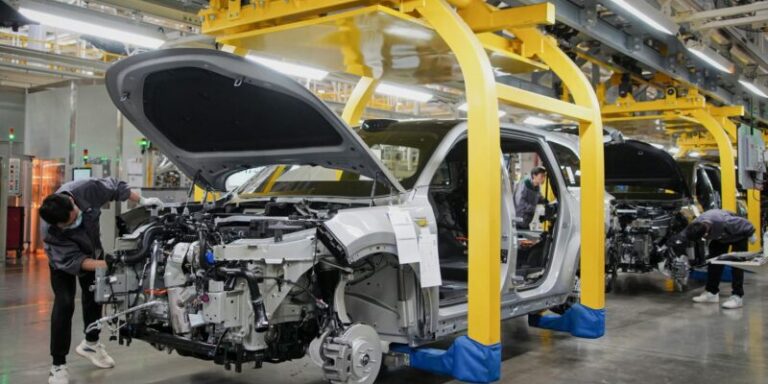South Africa’s new energy vehicle (NEV) market is expanding rapidly, with sales reaching 7,746 units in 2024 – up 65.7% from the previous year.
While NEVs still make up a small share of total vehicle sales, their adoption is accelerating, along with the necessary infrastructure. The country now has nearly 400 public charging stations, with further expansion planned for 2025.
As charging infrastructure expands, EFT Corporation is pioneering payment innovation in South Africa’s electric vehicle (EV) charging space by implementing a cloud-based, open-loop payment system for EV charging stations. In collaboration with Rubicon, Visa and Verifone, EV charging stations will become more user-friendly, paving the way for growth in the electric transport sector.
This groundbreaking solution, with the proof-of-concept phase already launched at several sites in Johannesburg and Cape Town, will allow customers to pay with major credit cards at Rubicon charging stations for the first time.
Prior to this launch, the closed-loop system meant that customers needed to set up pre-funded wallets and use special cards to charge their vehicle.
This created a series of extra steps in the process, inconveniencing users but also limiting interoperability across different charging stations.
Additionally, there was a need for a more efficient, seamless payment process without requiring physical computers at each charging station due to concerns like theft, power management, and maintenance.
Through the integration of EFTCorp’s payment platform with Verifone’s UX700 class-leading unattended payment device, customers can now use major credit cards on Rubicon charging stations, without having to pre-fund wallets. Additionally, terminals can now be controlled remotely using cloud-based technology.
Here’s how it works:
- Plug in: The user connects their car to a Rubicon charging station.
- Pre-authorisation: Once plugged in, the Verifone UX700 payment device at the station prompts for payment. The system then reserves a predefined amount on the user’s credit card before the charging starts.
- Charging: Once the pre-authorisation is approved, the charging process begins.
- Payment: If the user stops charging early, the final payment reflects only the electricity used, and the remaining reserved funds are released. If the charging process continues beyond the initial reservation, the system incrementally increases the reservation amount, adding funds to the initial pre-authorisation as needed, and the final amount is settled when the car is unplugged.
“There is no substitute for the convenience of simply tapping a card to transact instead of setting up an account and logging into a mobile app for each purchase,” says Vahini Jaganath, Senior Director – Digital Solutions for Visa Sub-Saharan Africa.
“With over 60% of transactions in South Africa now contactless, open-loop solutions allow drivers to charge their electric vehicles at any public charging station without needing an account or membership, creating a seamless payment experience.
Enabling contactless payments at all public charging stations is an important step in making EV ownership more accessible.”
“The implementation of incremental pre-authorisation for dynamic, consumption-based billing is a first for South Africa”, says Paul Carter-Brown, CTO at EFTCorp. “
It’s a great example of how collaboration can lead to significant innovation, with complex technologies being integrated to deliver a streamlined and user-friendly experience for customers.
EFTCorp orchestrated so many moving parts for this project: The payment terminals had to be controlled remotely without local computers for the first time, Verifone deployed its functionality to support remote cloud-based terminal control, and introducing incremental estimated authorisation and reducing pre-authorisation hold times necessitated specific customisations with our banking partner.
And all these various systems, including Rubicon, Verifone payment devices, and EFTCorp’s integrated technology stack and switches, had to be synchronised.
“The result is a significant advancement for the sector, benefitting all parties involved”, says Hilton Musk, E-Mobility Project Manager at Rubicon. “Though it required complex operational changes, the result is the opposite for the end-user: A considerably simplified experience.
It’s a unique solution for the EV charging sector and an important step for sustainability in South Africa, because the easier it is to access and use EV charging solutions, the better the adoption of electric vehicles will be.”
“Unattended payments are revolutionising the way consumers interact with businesses, and it is our ongoing goal to upgrade these shopping touchpoints into powerful digital commerce hubs that streamline the experience for the end user.
Together with its partners, Verifone leads this transformation through new standards for convenience and security, and through solutions for modern transactions that are deeply integrated with merchants’ and partners’ ecosystems,” said Craig Rankin, General Manager for Verifone South Africa.
The solution can also be scaled to other regions and markets, and incremental pre-authorisation can be used for other services beyond just vehicle charging.
Says Carter-Brown: “EFTCorp’s mission is to constantly push the boundaries of innovation to deliver payment solutions across Africa, increasing financial inclusion and access to the digital economy. This project does exactly that, and we’re excited to see it contribute to the payment landscape on the continent.”








